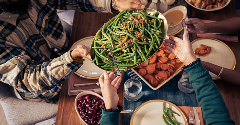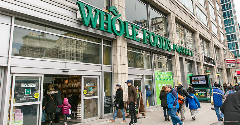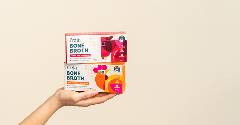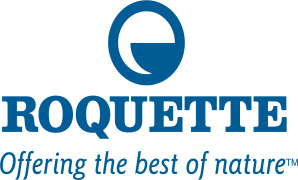News
The mainstreaming of meat alternatives
26 Oct 2018Tofu and lentils still have their place in a vegetarian diet, but a new generation of meat alternatives makes it easier than ever for consumers to switch to plant-based options – even the most enthusiastic meat eaters.

Meat alternatives have come a long way in recent years, as companies have developed new technologies and ingredients intended to mimic the taste, texture, aroma and colour of meat products. Extrusion technology in particular allows for plant protein products with the texture and shear of meats like pulled pork or chicken, and the use of plant-derived heme iron and beetroot juice can even simulate the juices that ooze from a beef burger.
A few high-profile companies, such as Beyond Meat and Impossible Foods, have dominated headlines for their trailblazing products, but behind the scenes, there is a groundswell of companies investing in the ingredients and technologies that could bring vegetarian meat analogues to the masses. The strides taken by pioneering meat substitute companies have helped spur this movement, but as investment in in plant-based proteins becomes more widespread, costs are likely to come down and meat substitutes look set to become an everyday dietary choice for a rising number of flexitarian consumers.
Roquette, for example, recently acquired a Dutch facility specialised in the extrusion of plant proteins, which helps produce a meat-like texture for plant protein ingredients. The company says the acquisition will help secure the availability of its textured pea protein ingredients in the long term, and increase its innovation capabilities in the global meat alternatives market. This could help make pea protein a viable alternative for makers of extruded plant protein products, which are often based on soy or wheat.
Meanwhile, the Finnish dairy company Valio has highlighted dairy as another alternative protein source. It has introduced a lactose-free meat substitute called MiFU made from dairy proteins, which is intended to have the texture and mouthfeel of chicken. The company plays up the nutritional value of dairy protein compared to other vegetarian meat substitutes, and its lack of common allergens, such as wheat and soy (as well as lactose).
According to figures from the EU project TRUE, sales of meat substitutes grew by 451% in Europe in the four years from 2013 to 2017, and the effect of this growth has been felt in raw materials too. As the meat alternatives market has gained momentum, demand for pulses has skyrocketed. More than 27,000 new pulse and legume products were launched worldwide from 2013 to 2017, and European agriculture is adapting to keep up. Eurostat figures show the area used to cultivate pulses in the EU increased by about 65% from 2013 to 2015.
Consumers have become increasingly interested in meat alternatives as companies continue to refine their texture and flavour, making them more convincingly meat-like – and the entire supply chain is taking notice.
Related news

Our most-read articles of 2025
23 Dec 2025
From trade tariffs to heavy metals in protein, we look back at some of the industry’s highlights of 2025 and round up our most-read stories of the year.
Read more
Bigging up bean-based products and consumption in Britain
19 Dec 2025
Non-profit organisation the Food Foundation has launched a campaign, “Bang in Some Beans”, designed to increase UK consumers’ legume consumption.
Read more
Ingredient transparency key to success in European natural health market
12 Dec 2025
Europe’s $40.7 billion supplements market is growing fast, fuelled by demand for products that support healthy ageing, mental wellbeing, and preventive health, say experts.
Read more
Whole Foods Market forecasts fibre frenzy for 2026
11 Dec 2025
Whole Foods Market has released its top 2026 trends, predicting that a fibre frenzy will take place next year as health-conscious consumers seek out nutritious, filling options.
Read more
Sorghum emerges as better-for-you hero ingredient
9 Dec 2025
With the launch of Novak Djokovic’s sorghum-based brand, the grain’s popularity in the better-for-you snacking sphere is on the rise, thanks to its nutritional and sensory properties.
Read more
Innovation promise in 'maturing' plant-based dairy alternatives market
8 Dec 2025
Plant-based dairy is a maturing market that still faces significant hurdles around taste, functionality, nutrition, and price, but industry is innovating fast, according to experts speaking at Fi Europe.
Read more
Celebrating the winners of the Fi Europe Innovation Awards 2025
3 Dec 2025
Food industry stakeholders celebrated as the winners of the Fi Europe Innovation Awards were announced at a ceremony in Paris.
Read more
Apply now for the Vitafoods Europe Innovation Awards 2026!
28 Nov 2025
Entries for the Vitafoods Europe Innovation Awards 2026 are now open! Game-changing companies have until 27 February to submit their entry across eight categories for the chance to win big.
Read more
Concerns swirl around cinnamon’s compliance with EU law
25 Nov 2025
Cinnamon may be a top functional ingredient, but it needs stronger protocols to ensure it meets EU food safety laws and quality standards, say researchers.
Read more
Bone broth: From old-fashioned to en vogue
24 Nov 2025
OXO’s entry into bone broth has turned the spotlight on this small but high-performance category – and there is still scope for growth, especially in the area of GLP-1 support.
Read more
